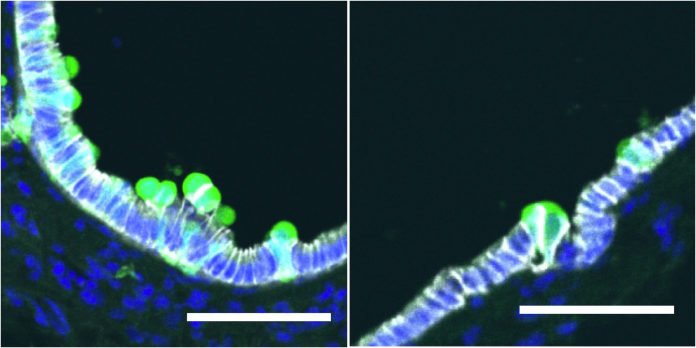In recent years, several researchers have focused on obesity as a potent cancer risk factor. Scientific shreds of evidence have suggested that obesity was associated with increased risk for a plenty of different types of cancer. But its role in cancer initiation has been uncertain.
“Epithelial” cells coating the surfaces of organs have the characteristic capacity to expel possibly threatening cells from their middle. This is known as the “epithelial defense against cancer” mechanism. Ordinarily, the phones sense hurtful cells and drive them out by the procedure called cell rivalry.
To think about how obesity affects this mechanism, specialists from Hokkaido University and their associates reproduced mice that were intended to express known cancer initiating mutant protein called Ras. Epithelial cells normally evacuate the conceivably harmful Ras-changed cells.
Feeding the Ras mice high-fat diets, resulted in severe obesity, suppressed the defense mechanism and therefore increased the number of Ras-transformed cells remaining in the tissue.
This suppression was found in the digestive system and pancreas, yet not in the lungs. Besides, after a month the Ras-changed cells built up a tumor in the pancreas of mice with the high-fat eating regimen. The outcome bolsters past connections made amongst intestinal and pancreatic disease and corpulence, however not lung cancer.
Scientists found that fatty acids and chronic inflammation cause the suppression of the defense mechanism. When mice fed a high-fat diet and treated with aspirin, the defense mechanism was substantially enhanced. This implies that reinforcing the epithelial defense mechanism with anti-inflammatory drugs could be utilized for cancer prevention.
Yasuyuki Fujita of Hokkaido University who led the study said, “This is the first report to show that obesity and chronic inflammation can influence the competitive interaction between normal cells and transformed cells. It implies other factors such as infection, smoking, sleeping patterns and aging may also affect cell competition.”
The study was published in the journal Cell Reports, April 24, 2018.
